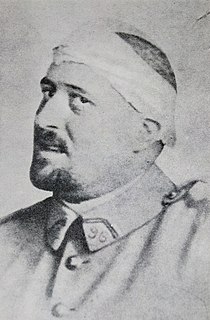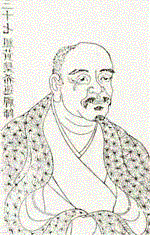Цитата барона д'Гольбаха
Ведь что такое атеист? Он тот, кто разрушает вредные для человечества заблуждения, чтобы вернуть людей к природе, к реальности, к разуму. Это мыслитель, который, размышляя о природе материи, ее энергии, свойствах и способах действия, не нуждается ни в идеализированных силах, ни в воображаемых интеллектах для объяснения явлений вселенной и действий природы.
Связанные цитаты
Природа характеризуется силой; человечество по слабости. Природа придерживается неизменного порядка; человечество к постоянно растущему хаосу. Природа не признает равенства ни на каком уровне своего порядка; человечество проповедует всепроникающее равенство и свободно раздает незаслуженные «права» в попытке сделать свое учение живой реальностью. Короче: человечество демократично, природа фашистка.
Мир строгого натурализма, в котором хитроумные математические законы сами по себе создают вселенную и жизнь, является чистой [научной] фантастикой. Теории и законы не создают материю/энергию. Мнение, что они, тем не менее, каким-то образом обладают способностью, кажется довольно отчаянным убежищем... от альтернативной возможности... Пытаясь избежать явных доказательств существования божественного разума, стоящего за природой, ученые-атеисты вынуждены приписывать творческие способности менее и менее заслуживающие доверия кандидаты, такие как масса/энергия и законы природы.
После десятилетий тщательных исследований экологи начали находить скрытые сходства во многих переплетенных системах. ...канон законов, стратегий и принципов природы... Природа питается солнечным светом. Природа использует только ту энергию, которая ей необходима. Природа подгоняет форму под функцию. Природа все перерабатывает. Природа вознаграждает сотрудничество. Природа делает ставку на разнообразие. Природа требует местных знаний. Природа сдерживает излишества изнутри. Природа использует силу ограничений.
Без поэтов, без художников люди скоро утомились бы от монотонности природы. Возвышенное представление людей о вселенной рухнет с головокружительной скоростью. Тот порядок, который мы находим в природе и который является лишь результатом искусства, тотчас же исчез бы. Все разрушится в хаосе. Не было бы ни времен года, ни цивилизации, ни мысли, ни человечества; даже жизнь уступала место, и повсюду царила бессильная пустота.
Вера – это действительно энергия всей нашей вселенной, направленная на высшую форму бытия. Вера придает устойчивость нашему взгляду на вселенную. Верой мы убеждены, что наши впечатления от внешних вещей — не мечты и не заблуждения, а для нас истинные представления о нашем окружении. Верой мы убеждаемся, что признаки постоянства, порядка, прогресса, которые мы наблюдаем в природе, истинны. Верой мы убеждены, что общение возможно с нашим ближним и с Богом.
Нет ничего более человечного, чем желание человека по природе вещей, невозможных для его природы. На самом деле это свойство природы, которая не замкнута в материи, как природа физических вещей, но которая является интеллектуальной или бесконечной в духе. Это свойство метафизической природы. Такие желания тянутся к бесконечному, потому что разум жаждет бытия, а бытие бесконечно.
Само наше имя Божьего Творения — ПРИРОДА, ибо это и есть Природа. Я дам вам определение Природы простыми словами. Природа — это мысленный образ электрической волны природы Бога, электрически спроецированный из Его бесформенного и необусловленного ОДНОГО СВЕТА в бесчисленное множество форм обусловленного света, который мы называем материей.
Изучение Природы есть общение с высшим разумом. Вы никогда не должны шутить с природой. На самом низком уровне ее работы - это работы высших сил, высочайшего чего-то во вселенной, как бы мы на это ни смотрели ... В этом прелесть изучения самой природы; она возвращает нас к абсолютной истине, где бы мы ни блуждали.
Природа Абсолюта ни воспринимаема, ни невоспринимаема; то же самое и с явлениями. Но для того, кто открыл свою истинную природу, как может быть где-то или что-то отдельное от нее?... ...Поэтому сказано: "Восприятие феномена ЕСТЬ восприятие Универсальной Природы, поскольку феномены и Разум одно и то же».
Люди нетерпеливы, и для того, чтобы ускорять события; но Создатель Природы кажется обдуманным во всех Своих действиях, достигая Своих естественных целей медленными последовательными шагами. И есть заранее составленный план вещей, который по своей природе требует различных систем средств, а также продолжительности времени, чтобы привести в исполнение его отдельные части.


































